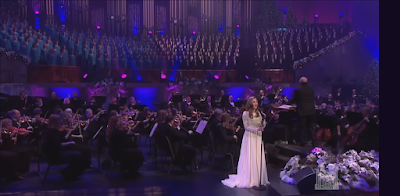It is marvellous to think a Sufi poet from the 13th century, Jalal al-Din Muḥammad Rumi, is a best-selling poet today. A death poem of his was recited, full of aphoristic couplets, translated by Farrukh Dhondy, the British writer of Parsi Indian origin. Rumi wrote his famous work, the Masnavi in six volumes over a period of 12 years. Here is a manuscript dating from 1461 of the first book:
First book of the six-volume Masnavi of Rumi, which was written over a period of 12 years
Thomas talks about the silence of the woods and nature’s ability to captivate the meditative soul; this gives him a place among the important minor poets who preceded the great ferment of modernism. A wonderful paean he wrote for English words is a reminder that poets, above all, are devotees of words:
You English words?
…
I know you:
You are light as dreams,
Tough as oak,
Precious as gold,
Our own Vikram Seth was represented in the session with two poems from his first book of poems, Mappings, published in 1980 by P. Lal’s Writer’s Workshop; that publication house is still going strong after 60 years, with P. Lal’s son, retired professor Ananda Lal, guiding it. The first works of authors as varied as Nissim Ezekiel, A.K. Ramanujan, Asif Currimbhoy and Ruskin Bond, came out in those distinctive hand-set, hand-printed and hand-bound covers with old saree fabrics.
Frank O’Hara was a seminal poet of New York City in the fifties and sixties when he became known as a poet and art critic. He met his longtime partner Vincent Warren, a handsome Canadian ballet dancer, in the summer of 1959. Warren became the inspiration for several of O'Hara's poems. We read a poem about the cityscape of New York detailing its life, much of it ordinary:
Negro stands in a doorway with a
toothpick, languorously agitating.
A blonde chorus girl clicks: he
smiles and rubs his chin.
Sometimes one has trouble finding the poetry in such lines.
But such trouble does not arise when you contemplate Matsuo Basho’s 17th century haikus. Six moments in nature, captured and frozen in the briefest of lines, were exhibited at the reading; here is one
How admirable!
To see lightning and not think
Life is fleeting
In Japanese:
inazuma ni
satoranu hito no
tattosa yo
We are the fortunate few in KRG whose spirits are restored from time to time at these sessions. Read on.





%20campus%20with%20Y%20mountain%20and%20Kyhv%20Peak%20(formerly%20called%20Squaw%20Peak)%20in%20the%20background.png)




